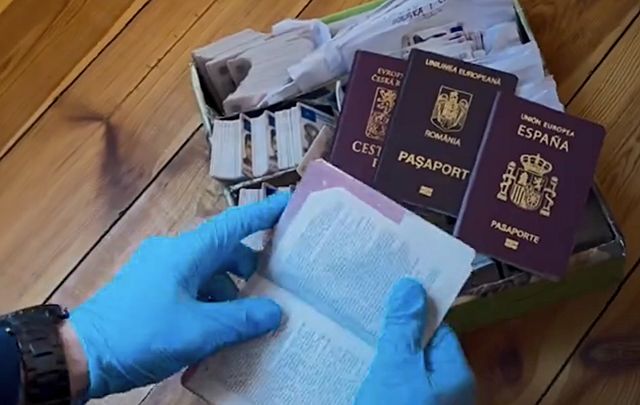Officers of the Polish Border Guard have discovered that since January of this year, there has been a significant operation involving a Ukrainian woman counterfeiting and forging various documents within a rented apartment in Gdańsk.
“The array of forged items includes residence cards, Polish and foreign ID cards, driving licenses, passports, visas, and various other documents from regional prefects, social insurance institutions, employers, medical professionals, and insurance companies,” said Tadeusz Gruchala, the local press spokesman for the Border Guard.
Gruchała noted that border guards also found equipment necessary to produce such documents in the form of seals of offices used by various officials and professionals.
“There were also ready-made document packages prepared for shipment to recipients located all over the world. Their search also discovered equipment such as laptops, mobile phones, printers, cutting tools, and photo lamps,” he said.
Gruchala explained that the activities carried out were a consequence of the detention of an Iraqi citizen, which took place at the beginning of February this year at Gdańsk airport. The man had tried to cross the border using forged Romanian documents: a passport, ID card and a driving license.
Gruchala said that at the same time the Border Guard facility in Gdańsk cooperated with the Customs Office in Gdynia. He emphasized that individual documents on the black market cost up to several thousand euros, depending on their type and degree of forgery. According to investigators, a set could cost up to €11,000.
The actions of officers of the Border Guard Station in Gdańsk contributed to the arrest of a 25-year-old woman with Ukrainian citizenship, who was involved in organizing the production of documents. Investigators revealed over 2,750 pieces of ready-made documents, the black-market value of which is estimated to exceed €3 million. If convicted, the person faces a prison sentence of up to five years.





